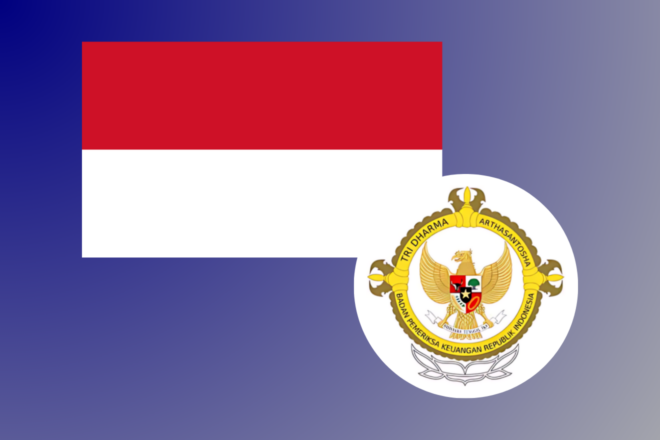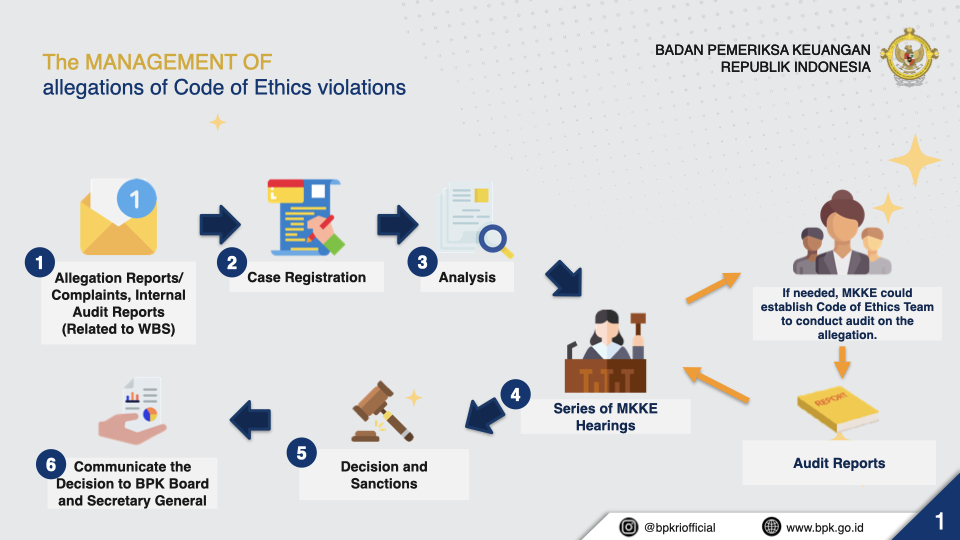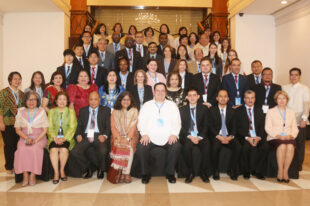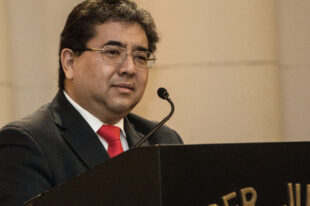The Evolution of the Honorary Council of the Code of Ethics: Strengthening SAI Indonesia’s Jurisdiction

Authors: Sherlita Nurosidah, Teguh Widodo (SAI Indonesia)
Introduction
Striving for a high standard of ethical assurance has been deeply rooted as part of daily services in public institutions. Globally, INTOSAI has ISSAI 130 on the Code of Ethics, which underlines the importance of implementing an ethics control system within the SAI. The system does not only carry out ethical requirements but also other programs, such as risk identification, analysis, mitigation, educational support, assessment of misconduct allegations, and suspect protection. SAIs worldwide vie to initiate a satisfactory management climate and proactively ensure the expected morality. Invariably, SAI Indonesia believes in honouring these values.
Various enforcement instruments are utilized to maintain integrity upon issuing Law Number 15 of 2006 on Badan Pemeriksa Keuangan, or SAI Indonesia. The law was fundamental to the early establishment of the Code of Ethics, and the Honorary Council of the Code of Ethics of SAI Indonesia (MKKE).
In 2007, SAI Indonesia issued SAI Regulation Number 2 of 2007, which governed both the Code of Ethics and MKKE. Fostering a favourable environment of trust, respect, and fairness is important. SAI Indonesia also provides several instruments to report suspicions of alleged violations of ethics, such as the technological utilisation of the whistleblowing system and wrongdoing reports (Nurosidah, 2024).
This article discusses the evolution of SAI Indonesia’s regulation on MKKE, which aimed to strengthen SAI Indonesia’s jurisdiction.
The Evolution of MKKE
The MKKE was first established under SAI Indonesia Regulation Number 2 of 2007 on the Code of Ethics. The Code of Ethics is a set of norms in line with the core values, namely independence, integrity, and professionalism. It outlines the obligations and prohibitions that each Board Member and Auditor of SAI Indonesia must adhere to when performing their duties. MKKE is a council established by SAI Indonesia to enforce its Code of Ethics. Comprising SAI Indonesia’s board members, practitioners, and academicians, the MKKE assesses any indication of integrity violations that board members and auditors may encounter to establish a strong foundation for maintaining the jurisdiction.
The Code of Ethics of SAI Indonesia was then continuously amended as needed in 2011, 2016, and most recently in 2018 by SAI of Indonesia Regulation Number 2, 3, and 4, respectively.
On the other hand, after 2007, MKKE was ruled under separate regulations in 2011, 2016, and 2018. The alterations are intended to adapt to the organisation’s development and needs. MKKE is currently ruled under the SAI Regulation Number 5 of 2018.

The MKKE regulations have evolved to keep pace with the latest developments in ethics and ensure that the council can effectively fulfil its mandate of maintaining the value of the Board and employees of SAI Indonesia. MKKE only oversees duties and authorities’ implementation during the Board Hearings in the earliest regulation. Still, the scope has recently expanded to audit policy determination, functions of the secretariat general, supporting roles, and other matters that needed to be decided by the SAI. The council has also emphasised prioritising state interests over personal or group interests, which is crucial in maintaining the jurisdiction. These changes have enhanced the council’s ability to uphold ethical standards and promote a culture of ethical behaviour within SAI Indonesia.
Members of MKKE consist of five persons and give more space to an open discussion from external parties. The regulations have changed so that as the number of academicians on the MKKE has increased from one to two persons, and and members from the SAI Board have been reduced from three to two persons. Members, excluding the SAI Board, are to be at least 50 years old, a change from the previous age minimum of 35 years. These changes to the MKKE membership aim to make critical and mature decisions. Another difference is that MKKE Board members’ appointments have changed to two years and six months, and they can be reassigned one more time. Board members also shall not be a member of any political party. They should not hold double positions and be employed by other national institutions that manage state finance and private companies.
Decisions made by the MKKE are final and bound, which differs from prior regulations that need to be legitimated by the Board Hearing. The number of quorums was also altered from three to four members, enhancing eloquent decision-making. The MKKE has grown stronger in terms of order, management, administration, and performance. SAI Indonesia also follows international standards in conducting quality control and quality assurance to adhere to ethical accordance.
Current regulation covers the new exposure of sanctions given to auditors who are found to have disobeyed the code of ethics and harmed the team or work unit. They will be directly given mild sanctions, such as being prohibited from performing auditing for a year with a probation of 6 months. The newest ruling seems more assertive than prior regulations, which only gave written reprimands and recorded them in the system. It categorises sanctions into mild, moderate, and severe. A moderate sanction is given to any misconduct to prohibit auditing from a year to two. At least three years or even being permanently exempted from being auditors is an example of a severe sanction. The new formulation is expected to bring a sense of assertiveness.
For a detailed explanation of these regulations’ amendments, see the linked appendix.
The Investigative Procedure of Code Ethics Violations
SAI Indonesia Regulation Number 5 of 2018 also regulates the investigation procedure of the code of ethics violations. It is a series of activities to enforce integrity by punishing the offender and providing a deterrent effect for the perpetrators. Investigative audits should be carried out with the aim of revealing incidents of alleged integrity violations. The procedure is held to investigate and/or decide whether violations of the code of ethics have been proven and impose the sanctions. The summary of the investigative procedure conducted by MKKE and the Inspectorate General of SAI Indonesia is as follows.

The investigative procedure has recently been included as one of the subcomponents of the Integrity Management Framework of SAI Indonesia, issued in early 2024. The framework covers strategies and policies designed to maintain integrity within the institution, which includes developing an organisational culture of integrity, preventing, detecting, and acting against integrity violations comprehensively and measurably. It accommodates all integrity management components and initiatives currently implemented and/or being developed by the SAI.
Conclusion
Cultivating a culture by prioritising integrity, independence, competence, professionalism, and accountability, as stated in ISSAI 130, enhances the chance to uphold ethical principles. Ethics enforcement shall highly value transparency, moral, and professional values to guide decision-making, more generally and within SAI Indonesia. Establishing integrity and trust forms the cornerstone for robust relationships and collaborations, empowering the organisation to navigate complex challenges with credibility and resilience. A workforce steeped in integrity exhibits commitment, motivation, and alignment with the organisation’s overarching goals, contributing to enhanced efficiency, productivity, and overall success.
The establishment of MKKE in SAI Indonesia highlights the institution’s perseverance in combating ethical misconduct. It aligns INTOSAI guidance with ethics monitoring. The commitment to integrity within the organisation not only conforms to the ethical guidelines set by the MKKE but also reinforces SAI Indonesia’s role as a reliable and responsible guardian of public funds. In essence, the synergy between organisational integrity and the principles upheld by the MKKE serves as a cornerstone for a resilient and ethically sound institutional framework. Everchanging regulations on MKKE accompany the development of other policies. Hence, it is highly plausible to have another amendment in the foreseeable future as a continuous evolvement of the regulation, especially regarding the issuance of Law Number 20 of 2023 on State Civil Servants.
About the Authors
Sherlita Nurosidah is a graduate of the University of Birmingham, United Kingdom and Universitas Brawijaya, Indonesia. To this date, Sherlita has actively written academic journals and conference papers on diverse topics, such as accounting, public auditing, economic issues, flypaper effects, sustainable energy, sustainable agriculture and food security, and legal studies.
Teguh Widodo is currently serving as the Inspector of Integrity Enforcement for the Inspectorate General of SAI Indonesia. He earned a doctoral degree in budgeting from the School of Government at the University of Birmingham, United Kingdom in 2017.





